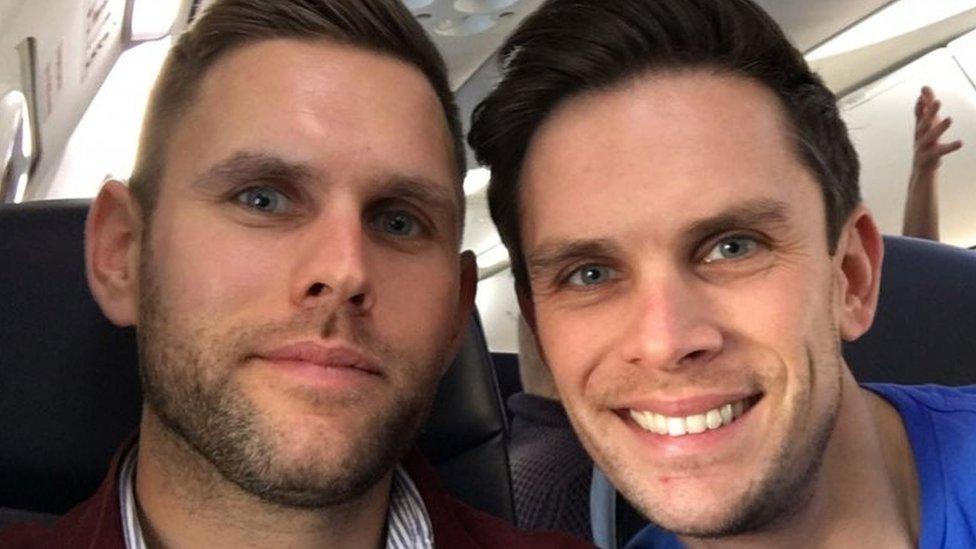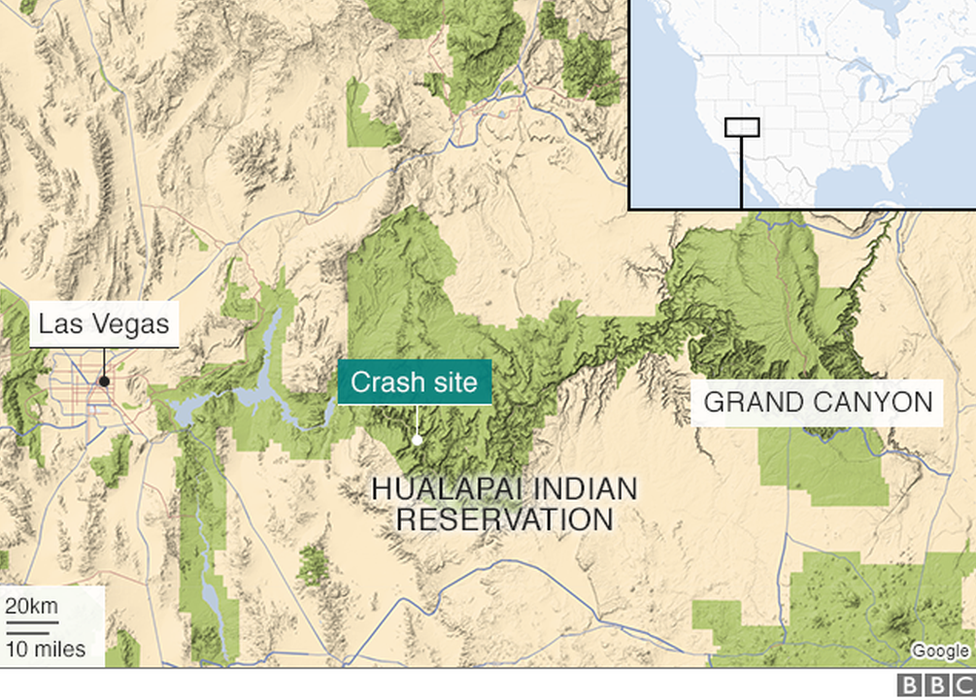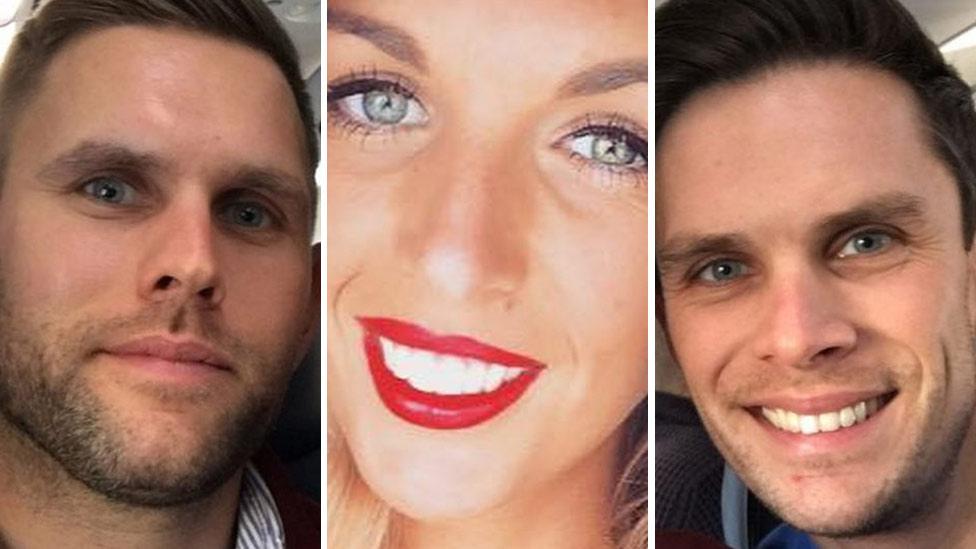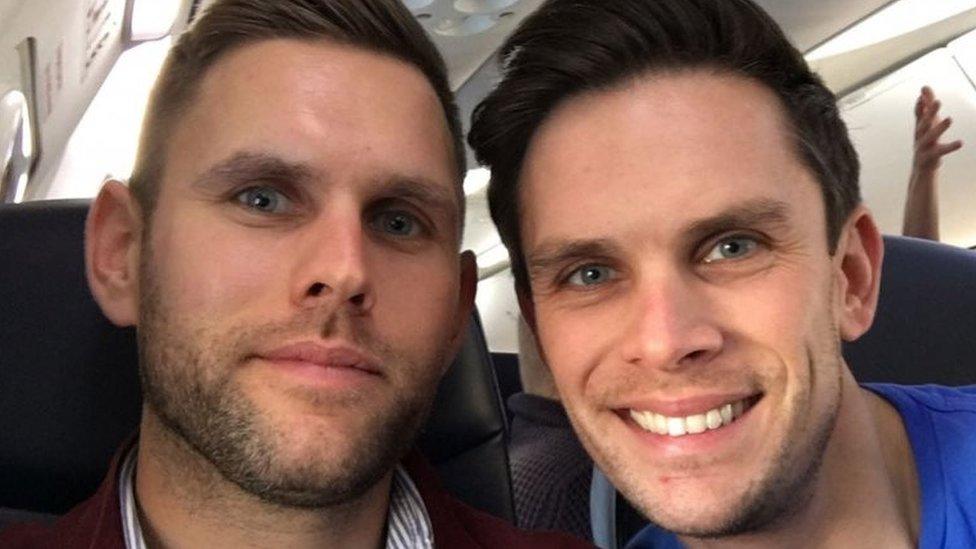Grand Canyon fatal helicopter crash 'probably caused by wind'
- Published

Brothers Stuart (left) and Jason Hill were sitting together when the helicopter crashed
A helicopter crash in the Grand Canyon which killed five Britons was probably caused by the pilot losing control due to wind, a report has concluded.
The pilot told US investigators that the aircraft encountered a "violent gust of wind" and began to spin.
The Airbus EC130 B4 was engulfed in flames after crashing at the Arizona tourist attraction in February 2018.
Brothers Stuart and Jason Hill, 30 and 32, from Worthing, West Sussex, were among those who died.

Jonathan and Eleanor Udall were on their honeymoon
Stuart's 27-year-old girlfriend Becky Dobson was also killed in the crash, along with their friends, honeymooning newlyweds Ellie Milward, from West Sussex, and Jonathan Udall, from Southampton.
In its final report into the incident, the National Transportation Safety Board (NTSB) in the US concluded tailwinds, potential downdrafts and turbulence were the probable cause of the loss of control of the aircraft.
The group were on holiday in the US to celebrate Stuart's 30th birthday, and the Udalls were travelling as newlyweds and were making a trip to Las Vegas.

Rebecca Dobson was on holiday to celebrate her boyfriend Stuart Hill's 30th birthday
Jason's girlfriend Jennifer Dorricott survived the crash but suffered life-changing injuries.
Pilot Scott Booth also survived but had both his legs amputated.
He was conducting his third air tour flight of the day when he attempted to land next to the Colorado River within the Grand Canyon.
Post-accident examination of the helicopter found no evidence of mechanical problems, according to the findings, which did not include any safety recommendations.

The victims were not taken to a hospital until around six hours after the crash, due to the remote location and communication difficulties, investigators found.
The "most significant factor" affecting survival of those on board the helicopter was the post-crash fire, according to the findings.
The aircraft was "not equipped, nor was it required to be equipped, with a crash-resistant fuel system".
After the crash, the helicopter company announced that it would fit crash-resistant tanks to its fleet.

Follow BBC South East on Facebook, external, on Twitter, external, and on Instagram, external. Send your story ideas to southeasttoday@bbc.co.uk.
- Published4 December 2018

- Published3 May 2018

- Published3 March 2018

- Published16 February 2018

- Published13 February 2018

- Published12 February 2018

- Published12 February 2018
